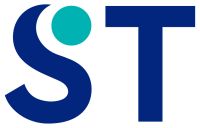- By Sean O’Farrell, Managing Director, Choice Business Loans
- 11 May, 2020

Share by email
At some point most businesses will consider applying for credit, however, the process can be intimidating. So how can businesses increase their chances of being successful when applying for finance? Sean O’Farrell, Managing Director of finance brokerage Choice Business Loans explains all.
At some point most businesses will consider applying for credit, however, the process can be intimidating. So how can businesses increase their chances of being successful when applying for finance?
At Choice Business Loans, we often compare credit applications to a three-legged stool: affordability, credit score and security. All three legs need to be as equal as possible when submitting a finance application.
Affordability
The first leg is affordability. Lenders need to see that the business has a strong history of generating income. This will give them some reassurance that the business will continue to generate a similar income in the future. Projections can be a useful way to demonstrate growth, but they need to be backed up by past numbers.
A key metric used by lenders to determine affordability is the company's earnings before interest, taxes, depreciation, and amortisation (commonly abbreviated EBITDA). After deducting all current financial obligations and after taking into consideration the current finance cost, lenders need to be able to see a surplus. How much of a surplus varies from lender to lender and is often dependent on the other two factors - credit score and security - which leads us to the next leg, the company’s credit score.
Credit score
The company’s credit score demonstrates to lenders that the business behaves responsibly with credit, which includes paying bills on time or not bouncing payments due to insufficient funds showing in the bank account statements. Depending on the lender and/or the type of business, the company director’s personal credit score and the way they conduct business can also play a role. Every time you submit an application your score goes down slightly, so it’s worth noting that you shouldn’t make multiple applications at the same time as it’s likely to affect your personal credit score.
Security
The third main factor that lenders examine is security, which provides them with a safety net. If the business cannot repay the finance, lenders need to be able to recover their funds. Security could include things such as a charge on assets, personal guarantees from the director or having the right to take over receivables of the firm. The level of security varies based on the perceived risk of the loans and it can also contribute to shaping the interest of the loan.
Current economic and socio-political environment
And last but definitely not least, the current economic and socio-political environment plays a big role in finance applications. For example, with governments currently intervening in markets and with many private lenders stepping back from offering finance, current credit conditions are stretched. If your industry has not been greatly affected by the outbreak then you have more options available to you but if it has, it’s important to show lenders how your business is adapting and how it intends to recover and make a profit.
Establish what you need the money for
The most important thing is to establish what you need the money for and understand the options available to you. For example, if you’re investing in an asset, a five-year loan may be a good solution. If it’s for cashflow, then an overdraft, which can be arranged privately and externally to your bank, might be more appropriate Always speak to your bank first as they understand your business and tend to have the cheapest rates.
Government schemes and other finance opportunities
If you’re eligible, they will be able to lend you under the Coronavirus Business Interruption Loan Scheme (CBILS) or the Bounce Back Loan Scheme (BBLS). If your bank isn’t a member of CBILS and BBLS Schemes, lenders such as Funding Circle have more flexible criteria, require less information and can process applications faster. Their interest rates are higher, however if you’re applying under the government schemes, the government will be covering the interest for the first 12 months, after which you may be able to refinance at a better rate when stability has returned to the markets.
Conventional lenders, outside of the government schemes, are still available but are more cautious. They may request different types of security, including personal guarantees. Their rates will be higher than bank finance but the application should move substantially faster.
So, think what you need the money for, identify who is the most suitable lender for you and prepare your three-legged stool!
Sean O’Farrell is Managing Director of long-established finance brokerage Choice Business Loans, which helps businesses access traditional forms of finance as well as alternative ways of raising finance, such as peer-to-peer lending, crowdfunding and private lenders.







